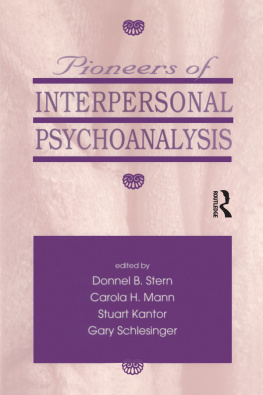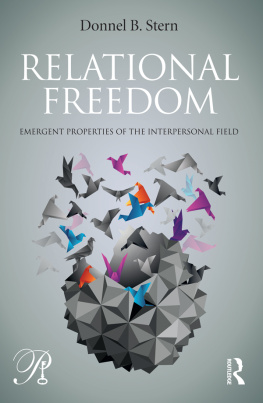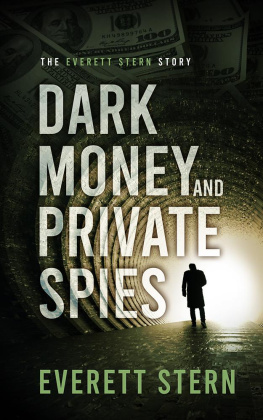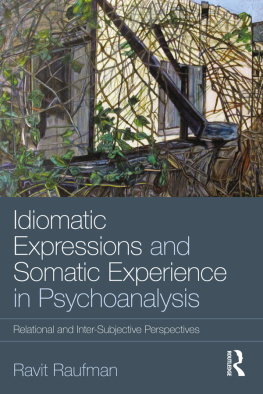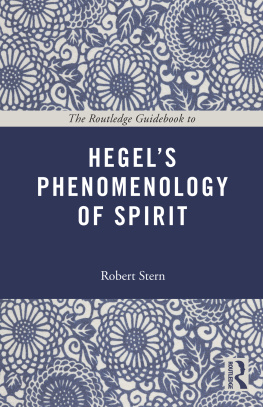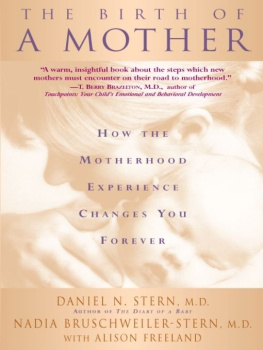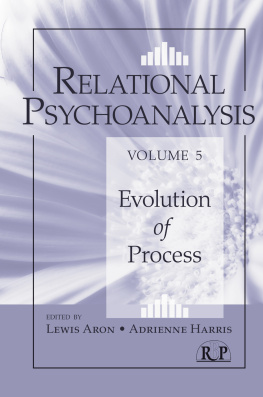Unformulated Experience
From Dissociation to Imagination
in Psychoanalysis
Relational Perspectives Book Series
Stephen A. Mitchell and Lewis Aron
Series Editors
Volume 1
Rita Wiley McCleary
Conversing with Uncertainty: Practicing Psychotherapy in a Hospital Setting
Volume 2
Charles Spezzano
Affect in Psychoanalysis: A Clinical Synthesis
Volume 3
Neil Altman
The Analyst in the Inner City: Race, Class, and Culture Through a Psychoanalytic Lens
Volume 4
Lewis Aron
A Meeting of Minds: Mutuality in Psychoanalysis
Volume 5
Joyce A. Slochower
Holding and Psychoanalysis: A Relational Perspective
Volume 6
Barbara Gerson, editor
The Therapist as a Person: Life Crises, Life Choices, Life Experiences, and Their Effects on Treatment
Volume 7
Charles Spezzano and Gerald J. Gargiulo, editors
Soul on the Couch:
Spirituality, Religion, and Morality in Contemporary Psychoanalysis
Volume 8
Donnel B. Stern
Unformulated Experience:
From Dissociation to Imagination in Psychoanalysis
Volume 9
Stephen A. Mitchell
Influence and Autonomy in Psychoanalysis
In Preparation
Karen J. Maroda
Surrender and Transformation:
Mutuality in Relational Analysis
Lewis Aron and Frances Sommer
Anderson, editors
Relational Perspectives on the Body
Stuart A. Pizer
Negotiation of Paradox in
Psychoanalysis
Peter Shabad
The Echo of Inner Truth:
A Psychoanalytic-Existential
Synthesis
Emmanuel Ghent
Process and Paradox
Unformulated Experience
From Dissociation to Imagination in Psychoanalysis
Donnel B. Stern
2003 by The Analytic Press, Inc., Publishers
First paperback printing 2003
All rights reserved. No part of this book may be reproduced in any form: by photostat, microform, electronic retrieval system, or any other means, without the prior written permission of the publisher.
Published by The Analytic Press, Inc.
101 West Street, Hillsdale, NJ 07642
www.analyticpress.com
Earlier versions of several chapters appeared in Contemporary Psychoanalysis. appeared as "Courting Surprise" (1990) 26:452-478.
"Good Form" from The Things They Carried. 1990 by Tim OBrien. Reprinted by permission of Houghton Mifflin Co., Seymour Lawrence. All Rights Reserved.
Library of Congress Cataloging-in-Publication Data
Stern, Donnel B.
Unformulated experience: from dissociation to imagination In psychoanalysis / Donnel B. Stern
p. cm. (Relational perspectives book series; v. 8)
Includes bibliographical references and index.
ISBN 0-88163-405-0
1. Psychoanalysis 2. Consciousness 3.
Subconsciousness. 4. Imagination I. Title. II. Series.
BF175.3665 2003
150.18'5dc21
97-25923
CIP
Printed in the United States of America
10 9 8 7 6 5 4 3
For Kathe
[T]here is in human existence a principle of indeterminacy, and this indeterminacy is not only for us, it does not stem from some imperfection of our knowledge, and we must not imagine that any God could sound our hearts and minds and determine what we owe to nature and what to freedom. Existence is indeterminate in itself, by reason of its fundamental structure, and in so far as it is the very process whereby the hitherto meaningless takes on meaning...
Maurice Merleau-Ponty
The Phenomenology of Perception
It is when working on movements which are still irresolute, unstilled, which may not either be called diversions or laws, works of art or theorems, movements which, when completed, lose their likeness to each other, that the operations of the mind can be of use to us.
Paul Valry,
"Introduction to the Method
of Leonardo da Vinci"
Contents
Part I.
Experience Formulated and Unformulated |
Part II.
Reconsidering Self-Deception: Toward a Theory of Dissociation |
Part III.
Unformulated Experience in the Work of the Analyst |
Psychoanalysts have always understood that we can reflect on experience only when it exists in verbal form. What we have not adequately considered in American psychoanalysis is the nature of language itself. For if language is not merely a set of tags or labels for experience, but actually plays a role in constituting it, we are challenged to change our conception of what it means for experience to be unconscious. Unconscious experience, under those circumstances, is no longer merely hidden, awaiting only language to bring it out of the shadows. Instead, the form it will eventually take in words is not predetermined by its own structure. The shape of our future verbal-reflective experience is not fully accounted for by its past. We can certainly hypothesize, and with a good deal of confidence, that unconscious experience exists; but it does not exist in forms in which we can grasp it in words. It remains to be interpreted. Unconscious experience and meaning is what I call unformulated experience, and unformulated experience has clinical implications. It implies changes in our conception of defense ().
Unformulated experience is the idea with which this book began 15 years ago. At the time, however, the idea was different in important respects, because I had yet to encounter hermeneutics. After writing and thinking about unformulated experience for a few years, I came into contact with the work of Hans-Georg Gadamer, a modern student of Heidegger's, whose phenomenological or ontological hermeneutics seized my imagination and seemed to me to have much to say to psychoanalysis. I recognized in Gadamer a mentor and soulmate. His way of describing what it is to understand seemed very right to me and still does. His view is historicist and perspectivist, so that he accepts that we can understand only what the language of our time and place allows; but he has an ontology that is not limited to perspectivism. Gadamer envisions a reality beyond the reach of words, but it is not one we will ever be able to sense directly. He therefore allows room for both the relativist and the realist, and does so while simultaneously preserving the imaginative aspects of understanding and offering not even a toehold to nihilism.
Perhaps most important to me, with my long immersion in interpersonal and relational psychoanalysis, is Gadamer's insistence that understanding is always and inevitably dialogic, that it happens only in conversation, whether that conversation takes place between two people or between a person and a text, a theatrical production, a painting, and so on. This part of Gadamer's work immediately resonated with my conviction that the interpersonal field is the smallest meaningful unit of human living, which I had absorbed from the work of Harry Stack Sullivan and other psychoanalysts, some of whom were heavily influenced by Sullivan (e.g., Edgar Levenson) and others who probably never read a word Sullivan wrote (e.g., Racker and Winnicott). I was delighted, but not surprised, to learn from philosopher Richard that Gadamer was the single best listener and conversational partner Bernstein ever met.
As I became interested in Gadamer, my previous interest in unformulated experience began to fall away (or so I thought at the time), and I began to feel that I had moved on. Those were the exciting years during which metapsychology was overthrown, Merton Gill began to inter personalize his thinking, and Roy Schafer and Donald Spence presented the first explicitly hermeneutic formulations in psychoanalysis. I began to think about what hermeneutics could teach us about the clinical conundrums faced by the analyst embedded in the continuous invisible enactments of the analytic ).


